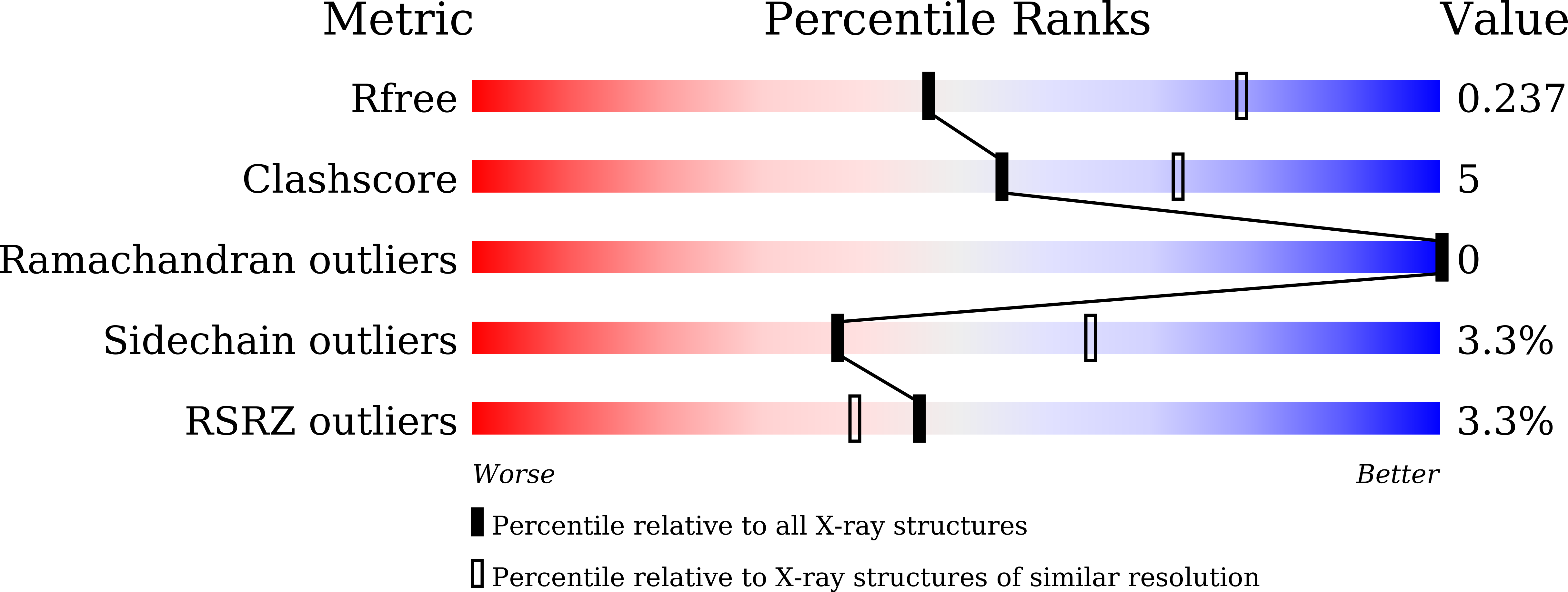Unlocking the Stereoselectivity and Substrate Acceptance of Enzymes: Proline-Induced Loop Engineering Test.
Qu, G., Bi, Y., Liu, B., Li, J., Han, X., Liu, W., Jiang, Y., Qin, Z., Sun, Z.(2022) Angew Chem Int Ed Engl 61: e202110793-e202110793
- PubMed: 34658118
- DOI: https://doi.org/10.1002/anie.202110793
- Primary Citation of Related Structures:
7F3P - PubMed Abstract:
Protein stability and evolvability influence each other. Although protein dynamics play essential roles in various catalytically important properties, their high flexibility and diversity makes it difficult to incorporate such properties into rational engineering. Therefore, how to unlock the potential evolvability in a user-friendly rational design process remains a challenge. In this endeavor, we describe a method for engineering an enantioselective alcohol dehydrogenase. It enables synthetically important substrate acceptance for 4-chlorophenyl pyridine-2-yl ketone, and perfect stereocontrol of both (S)- and (R)-configured products. Thermodynamic analysis unveiled the subtle interaction between enzyme stability and evolvability, while computational studies provided insights into the origin of selectivity and substrate recognition. Preparative-scale synthesis of the (S)-product (73 % yield; >99 % ee) was performed on a gram-scale. This proof-of-principle study demonstrates that interfaced proline residues can be rationally engineered to unlock evolvability and thus provide access to new biocatalysts with highly improved catalytic performance.
Organizational Affiliation:
Tianjin Institute of Industrial Biotechnology, Chinese Academy of Sciences, Tianjin, 300308, China.
















